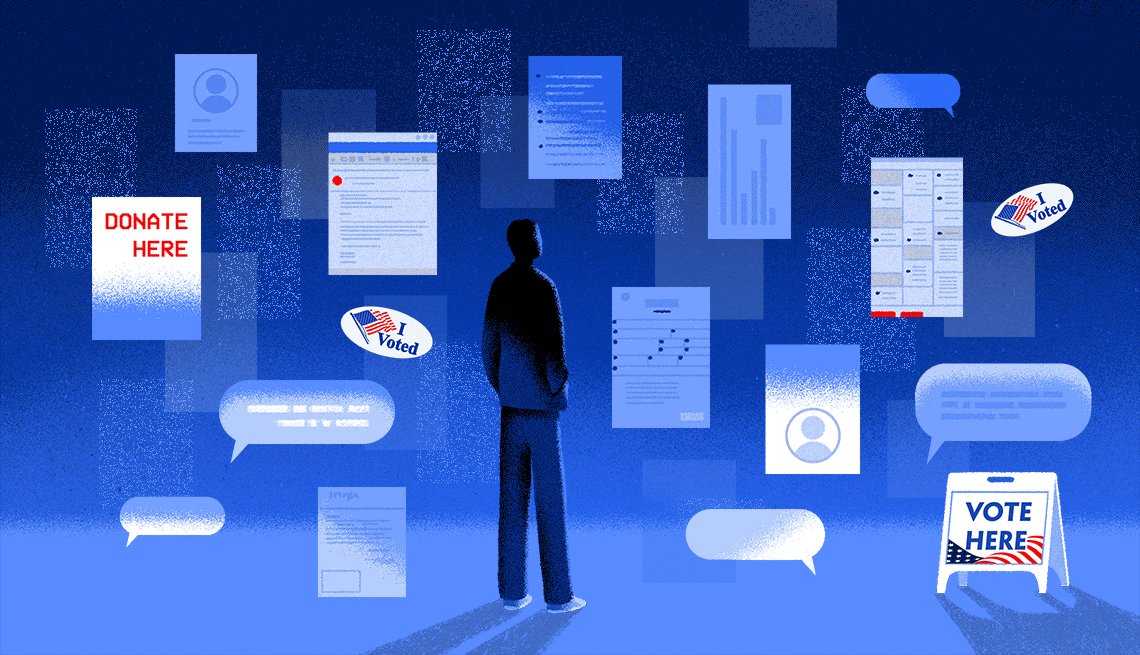AARP Hearing Center


As Michael Bruemmer, 65, shopped for a Christmas tree at a Kiwanis lot near his Austin, Texas, home, a voter registration volunteer approached him with an iPad, wanting to register him for the next election. The registration ploy was a scam, but unbeknownst to the scammer, Bruemmer was not an easy target: He’s a fraud expert and vice president of data breach resolution for Experian, a data analytics and consumer credit reporting company. Bruemmer quickly noticed misspellings on the supposed registration page.
“I said, ‘First of all, I’m already registered to vote, and second, your site is fake,’” recalls Bruemmer.
The flustered scammer stammered and gave excuses but quickly recovered — then, Bruemmer says, the guy asked him for his phone so he could download a registration app, “and I said, ‘I’m sorry, sir. You’re not going to download anything.’”
That was two years ago. Scammers have only grown more sophisticated, in part due to advances in and availability of AI, and they’re likely to use this year’s election to target your data and cash. Here are four common scams and ways to protect yourself.
1. Voter registration scams
When Bruemmer’s scammer offered to download a voter registration app on his phone, he likely would have downloaded a malicious app instead, allowing cybercriminals to steal personal data such as payment information and login credentials. Some apps “can suck people’s information out over Wi-Fi or Bluetooth,” Bruemmer cautions.
How to vote in your state
Learn more about absentee and early voting, ID requirements and registration in all 50 states, the District of Columbia, Puerto Rico and the U.S. Virgin Islands.
The more common problem, however, involves links to fake voter registration forms, which scammers send by phone, email or text. Those links may be phishing scams to collect personal data (such as your passwords and Social Security number) for or allow others to access your devices, according to Experian.
Ways to protect yourself:
- If someone claims you’re not registered to vote and offers to register you by phone, hang up. You cannot register by phone, email or text. In all 50 states, you can only register to vote online, by mail, or in person at a local election office.
- The safest option is to register at a government location or do so by mail. If you do register online, do not use unsolicited links.
- Voter registration drives often occur at events such as festivals and farmers markets, and sometimes the filled-out forms are left on tables where anyone can see them, the Identity Theft Resource Center warns. A better option is to take a form, fill it out, and mail it or deliver it in person to an election office.






































































More From AARP
What to Know About the Latest Amazon-Impostor Scams
Be aware of the latest ways criminals use the company’s name to steal from consumersWhat to Do If You've Just Been Scammed
How one woman worked quickly — with help — to avoid being charged through PayPal
8 Things to Know About Election Disinformation and AI
Artificial intelligence spreads, amplifies falsehoodsRecommended for You